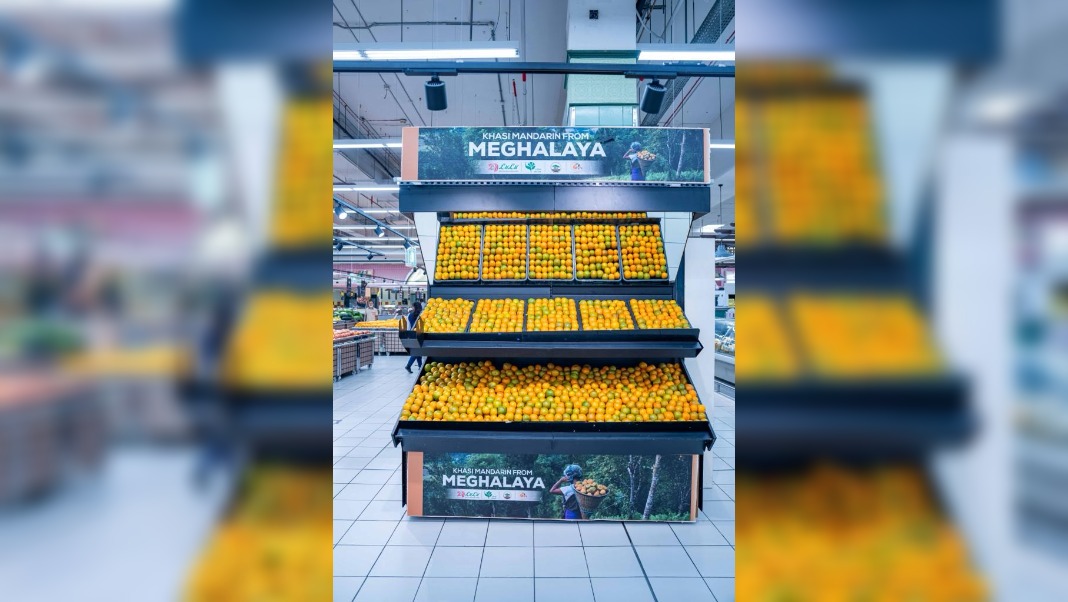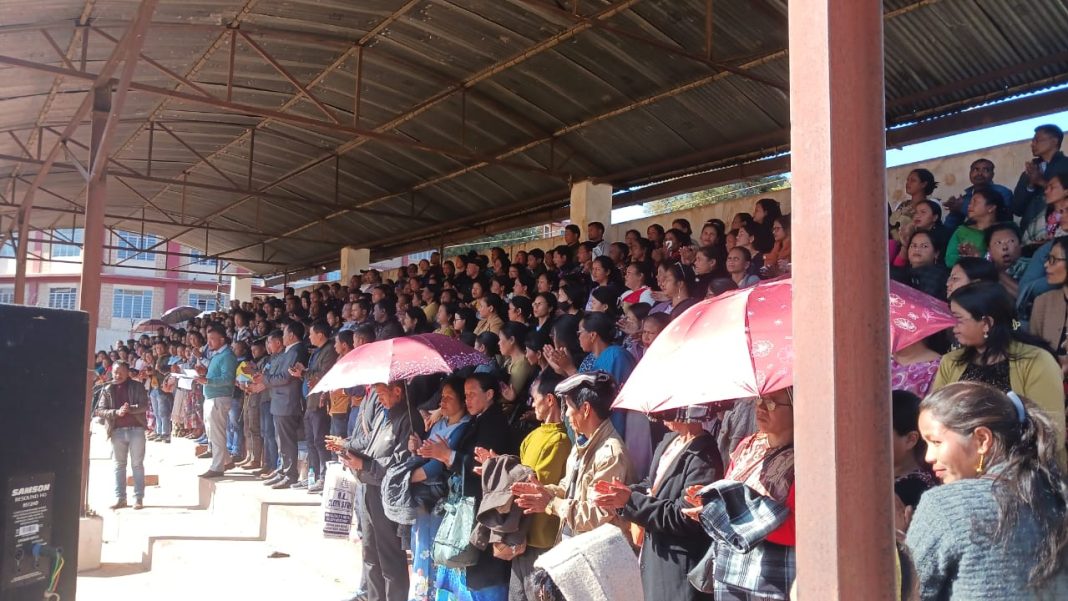Roopak Goswami
Shillong, Dec 16: High in the misty hills of Meghalaya, the Khasi mandarin (Citrus reticulata Blanco) thrives as a symbol of the region’s horticultural legacy. Known for its sweet-tangy flavour and vibrant hue, this economically significant fruit plays a vital role in the livelihoods of local communities.
The study ‘Exploring altitude-driven diversity: morphological, biochemical, and genetic diversity analysis of Khasi mandarin (Citrus reticulata Blanco) in Meghalaya, reveals a juicy secret: Khasi mandarins grown at higher altitudes are not only sweeter but also juicier than those from lower elevations.
The study carried out by Angshuman Kar, Sadhan Debnath, Mayank Rai, Wricha Tyagi & Ng. Tombisana Meetei was published in Genetic Resources and Crop Evolution journal.
The findings highlight how altitude influences the morphological, biochemical, and genetic diversity of this beloved fruit. Altitude is a well-known driver of variability in fruit crops, and the Khasi mandarin is no exception. Previous studies suggested that elevation affects traits like size, sugar content, and acidity, but this study goes further, exploring how altitude impacts the fruit’s genetic diversity. The research aimed to identify elite genotypes suitable for large-scale cultivation and to optimize production strategies for different altitudinal zones.
What Makes High-Altitude Mandarins Juicier?
The study found that Khasi mandarins from higher altitudes have thinner rinds and higher juice content compared to their lowland counterparts. This is due to the cooler temperatures and prolonged maturation periods at higher elevations, which slow down respiration and enhance the accumulation of sugars and organic acids. As a result, the fruits are denser, sweeter, and juicier.
The research involved a comprehensive sampling of Khasi mandarin genotypes from nine distinct altitudinal zones in Meghalaya. From each location, fruit and leaf samples were collected from five trees selected for their robust growth and superior fruit quality. The study’s methodology combined morphological characterization, biochemical analysis, and genetic profiling using simple sequence repeat (SSR) markers.
Morphological and Biochemical Analysis
Researchers evaluated tree structure and fruit characteristics such as leaf size, fruit weight, rind thickness, and fruit diameter. They followed guidelines from the International Plant Genetic Resources Institute (IPGRI) to document the physical traits associated with altitude-driven changes.
In terms of biochemical composition, the fruits were analyzed for total soluble solids (TSS), titratable acidity (TA), sugar content, and ascorbic acid (vitamin C) levels. These factors determine the sweetness, acidity, and nutritional value of the fruit, all of which are critical to consumer preference.
Decoding the Genetics
To understand the genetic basis of altitude-driven changes, the team extracted DNA from leaf samples and used 40 SSR markers known for their polymorphic properties in citrus species. Eleven of these markers exhibited clear polymorphisms, enabling researchers to detect genetic differences among the genotypes. Cluster analysis and an Analysis of Molecular Variance (AMOVA) were conducted to quantify genetic variability across the different altitudes.
The researchers say the comprehensive findings, integrating morphological, biochemical, and molecular analyses, provide valuable insights for cultivar selection, breeding programs, and conservation strategies for Khasi mandarin in the region, while offering practical applications for optimizing fruit production across various altitudinal zones.




